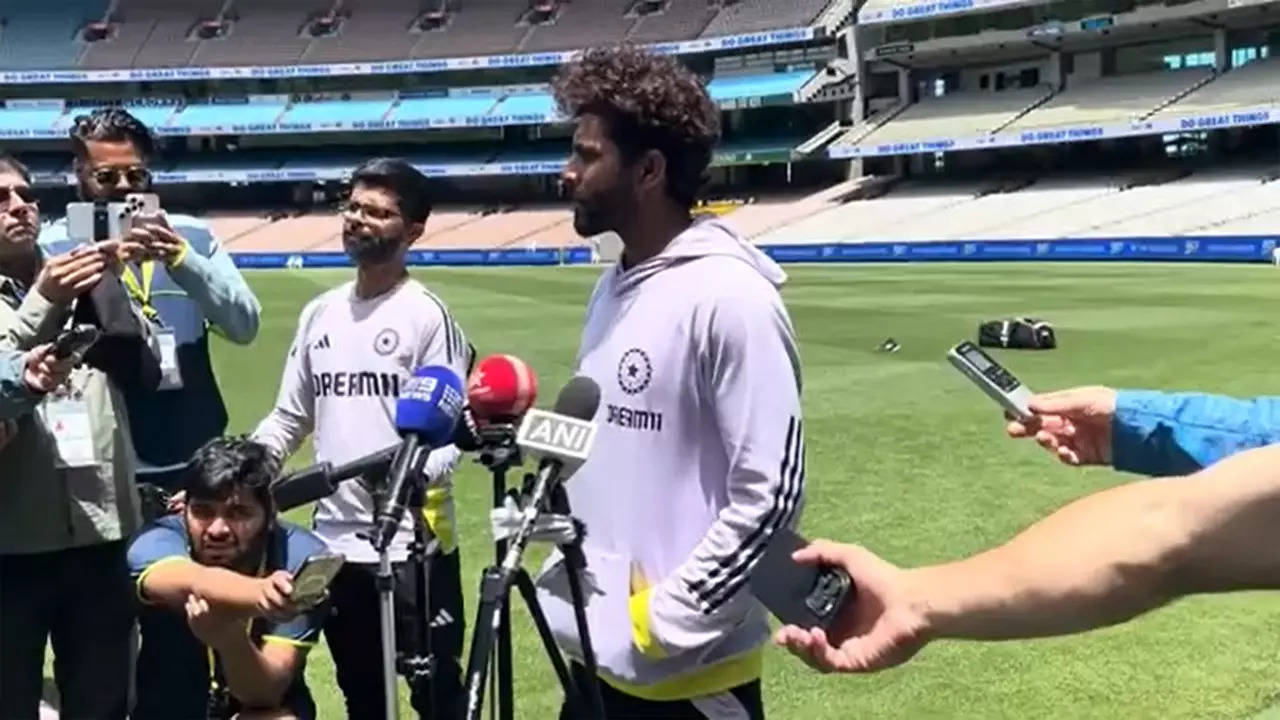Controversy Erupts as Australian Media Accuse Jadeja of Hindi-Only Interview
The cricket world is abuzz with a new controversy! A seemingly simple media interaction with Ravindra Jadeja has ignited a firestorm of accusations and sparked a debate about language and cultural sensitivities. Did the Aussie media overreact, or was this a justified response to a communication barrier? You won't believe the details of this heated encounter!
The Heated MCG Encounter
The scene? The Melbourne Cricket Ground (MCG), a legendary stadium pulsating with cricket fever. The players? Ravindra Jadeja, a renowned all-rounder, and a group of journalists, a mix of Indian and Australian reporters.
A Clash of Languages
The BCCI arranged a meet and greet between Jadeja and Indian media. However, some Australian media, uninvited and unaccredited, showed up and were permitted entry. This was a setup for an explosive confrontation. All questions posed to Jadeja were in Hindi—his native language—and his responses were in kind. But when a translation wasn't used for communication purposes, things turned ugly.
Australian Media Outrage
When the interaction ended without the Australian journalists' questions answered in English, some of them became vocal, creating a scene and reportedly ordering a cameraman to film the whole affair despite the BCCI manager trying to keep the interaction as “private”. This incident raises concerns of potential cultural misunderstandings during international sporting events.
Accusations and Counterarguments
Australian media outlets aired the conversation, a private session that included requests to stop filming. Critics claim that this violated privacy norms and spun a mundane event into unnecessary conflict, and others highlight that that the controversy is a needless escalation.
The Bigger Picture: Language Barriers in Global Sports
This event isn't an isolated case of clash of communication. Global sports often involve individuals from diverse linguistic backgrounds, demanding sensitivity and understanding during media interactions. Translation issues and cultural nuances play a major role in media interactions globally.
The Importance of Inclusivity
Sporting events are designed to foster unity. This is why sports journalism should ensure better media interaction policies. Language services and appropriate cultural awareness should be implemented, preventing such misunderstandings from creating tension. International teams should anticipate diversity in languages when accommodating reporters from many countries.
The Role of Media Responsibility
The role of responsible reporting also requires a critical examination. Was the Australian media's response a result of communication challenges, or a display of cultural insensitivity and bias?
Navigating Cultural Differences in the Sports World
The controversy highlights the need for increased cross-cultural awareness in the field of sports journalism and beyond. When diverse teams interact across languages and cultural norms, issues can be sensitive.
Fostering Communication in Global Sports
Organizations and individuals involved in global sports should actively strive to establish guidelines for media interaction and provide solutions that tackle miscommunication and improve global awareness. Cultural education helps improve interactions. These events create discussions about how cultural competency could reduce such issues.
Lessons Learned from the Jadeja Incident
This incident should serve as a wake-up call. Open dialogue between organizations and stakeholders is essential to promoting communication understanding, and to encourage cultural sensitivity.
Take Away Points
- Communication barriers remain significant in global sports, demanding better cultural sensitivity.
- Media organizations have a duty to demonstrate fairness and cultural respect.
- Increased understanding and effective communication strategies are key to resolving conflict.
- Cross-cultural awareness should be prioritized in training journalists covering global events.




